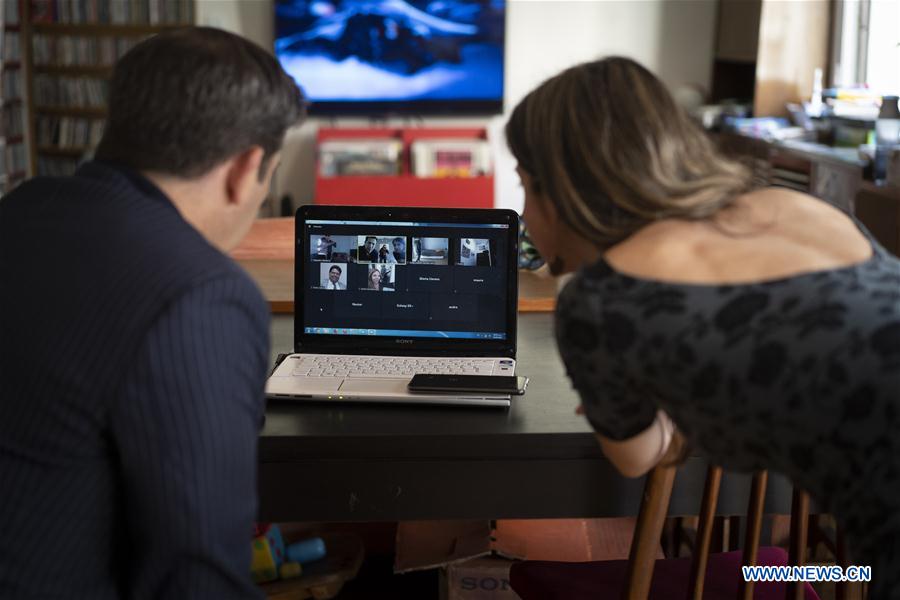
Juan Guerri (L) and Natalia Fossati teach an online Tango class at an apartment in Buenos Aires, Argentina, July 31, 2020. As traditional dance venues were closed during the COVID-19 pandemic, Tango, the emblematic dance of Argentina, has reinvented itself through virtual classes and online shows.(Photo by Martin Zabala/Xinhua)
BUENOS AIRES, Aug. 1 (Xinhua) -- As traditional dance venues were closed during the COVID-19 pandemic, Tango, the emblematic dance of Argentina, has reinvented itself through virtual classes and online shows.
"Today, we choose virtuality because it chooses us," Juan Guerri, vice president of the Argentine Tango Teachers and Dancers Association, told Xinhua.
"Avoiding hugging is avoiding tango itself. As an alternative, classes and festivals appear on the internet or via streaming," he said, adding that any couple looking to participate in such classes or events should be living under the same roof.
The quarantine that has been in force in Argentina since March to prevent the spread of COVID-19 led to the indefinite closure of the milongas, traditional spaces where tango enthusiasts gather to dance. Many of the dancers now offer classes via social media.
"We are looking for alternatives and we are activating them. That is why it has been proposed that some festivals in the world take place online. Thus, the possibility appears of doing something through a screen, individually or in groups," said Guerri, who is also a member of the National Academy of Tango.
Natalia Fossati, director of Tango & Tango, a producer of dance events and shows, told Xinhua that the new normal is a challenge, because the cultural essence of tango is hugging and face-to-face contact.
"Tango arose as a way of expression by a certain community and has always been linked to being social. The milongas are the privileged space where the culture of tango circulates, a space where we come together," Fossati explained.
Fossati said that the pandemic has forced tango enthusiasts to discover new ways and formats to participate in the dance community. "You can give a class on Zoom, and tango, as well as the culture, unites us in the same way, even if the other person is on the other side of a screen."
Guerri said he imagined that when the milongas reopen, "people (will be) dancing with masks in the middle of Buenos Aires and seeing who has the most elegant mask. Instead of having a silk scarf around his neck, the man will have a silk mask. What cannot happen is that the dance changes. That is not going to happen," he said.
Fossati predicted that at first, there will be "a situation of mistrust. When you return to a class, you will try to keep the same partner, but going to a milonga is sharing with others. We do not know what it will be like to return."



